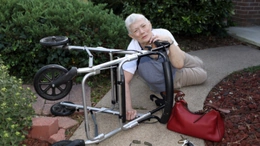When To Consider Respite Care: Signs You Might Need A Break

Caring for a loved one can be a deeply rewarding experience. However, it can also become physically and emotionally demanding over time. Several caregivers go back and forth with their personal lives, professional responsibilities, and caregiving duties.
They do not realize the toll it is taking on them. Short-stay care comes as a great savior in such times. It is not only helpful but also essential.
This article will help you understand when to consider this type of care and how it is important for maintaining your well-being as well as that of your loved one.
Understanding Respite Care
It is a form of short-term relief for primary caregivers. It can take place in various settings. This includes at home, in a facility, or at an adult day center. It is temporary care for those who may be ill, aging, or disabled.
The primary goal of this type of care is to give caregivers time to rest, recharge, and manage their own lives. All of this happens while their loved one remains safe and supported.
Short-term care can be customized as per specific needs, which means you can get anywhere from a few hours a week to or few days each month. It also can be a trial run before you consider long-term care options.
Why Caregivers Hesitate To Seek Help
Many caregivers struggle with the idea of stepping away, even when it is for a brief amount of time or there can be several benefits. Several psychological and social barriers may prevent one from seeking respite even when it is urgently needed.
Guilt And Fear Of Judgement
A common reason for caregivers avoiding this form of care is the feeling of guilt. They may feel that taking a break means they are failing in their duties.
They may even feel that they are abandoning their loved ones. Moreover, some fear being judged by family or friends who do not fully understand the demands of caregiving.
Belief That Only They Can Provide The Right Care
A lot of care workers get so deeply engaged in their loved one's everyday life that they believe nobody except themselves can take care of them properly. This may arise from the feeling of love and commitment, but it can be a root cause of burnout if not corrected in time.
Cultural/Familial Expectations
In some households or communities, caregiving is the only family’s responsibility. Getting help from other people outside could be viewed as uncaring or showing disgrace, and it may be tough for the caregivers to realize that they need help even if they are undergoing hardships.
Misunderstanding Temporary Care
Some caregivers may believe this type of care is equivalent to giving up or placing a loved one in permanent institutional care. Actually, this care type is a temporary and flexible service that exists to support. It is not always a means to replace the caregiver.
Signs You Might Need A Break
You should know that the right time to opt for short-stay care is when caregivers are not emotionally stable or when the ones providing the care and the care-receiver are in distress. If you see these signs, then it is the right time for you to get away for a while:
Physical Exhaustion
Do you find yourself tired even after having enough sleep in the night? Taking care of someone usually means working for long hours in a day and doing physically demanding tasks.
Constant headaches, body pain, and tiredness are all symptoms of the body being under a lot of pressure, and it needs to rest and recover.
Emotional Burnout
Caregiving can take an emotional toll. This is especially relevant when you are dealing with progressive illnesses like Alzheimer’s or chronic disability. Symptoms of burnout include feelings of hopelessness and anxiety.
One might even feel irritated and emotionally numb. It is time to pause and care for your emotional health if you find yourself crying frequently and feel mentally checked out.
Social Withdrawal
As a caregiver, have you found that you are no longer able to meet with your friends and do things you used to enjoy? A lot of caregivers are in the habit of sacrificing their social life for the sake of the person they look after.
This can lead to feelings of isolation and depression. Temporary care allows you the space to reconnect with others and avoid loneliness.
Reduced Patience Or Compassion
It is a red flag if you feel impatient and angry more often. Feelings of resentment toward a loved one are also a cause of concern. These feelings are normal under stress but should not be ignored. They show that you are overwhelmed and need a break to reset yourself emotionally.
Decline In Quality Of Care
Mistakes in medication or missed appointments are serious indicators that you are overextended. Even overlooked hygiene issues need to be taken seriously. Short-term care provides the time to regroup and ensure your caregiving abilities can uphold a high standard.
Impact On Work Or Finances
It is time to reevaluate how sustainable your current situation is if you are missing work and taking unpaid leave. It is even more concerning if you find yourself struggling financially. This type of care can help bring balance and financial stability to your caregiving role.
How Short-Stay Care Helps?
Choosing respite is not a sign of weakness. It is an important measure to protect your health. Here is how it helps:
Rest And Recovery For Caregivers
Caregiving is a full-time job. Rest is essential to maintain energy and focus, and this applies to all jobs. Respite gives you the chance to catch up on sleep and simply enjoy some personal time without feeling stressed or guilty.
Improved Relationship Between Caregiver And Recipient
Time apart can strengthen your relationship. Caregivers returning after a break usually feel more patient and compassionate. They can also be more emotionally patient with their loved ones. The care recipient can thus benefit from a more attentive caregiver.
Conclusion
Caregivers are the backbone of our healthcare system. They give love, time, and labor without rest or recognition. However, no one can pour from an empty cup.
Recognizing the signs of burnout early on and going for respite care is really important. It is a wise and necessary step. It helps you take time out for yourself and be compassionate in your role.






















